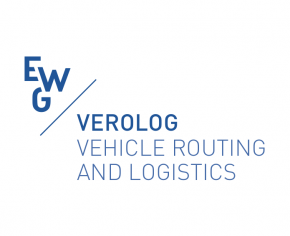In the last years, we have seen important evolutions in the logistics and transportation sectors, the industry is changing due to evolving demand structure, societal, and environmental changes. In addition novel technologies, ubiquitous connectivity, and digitalization are opening new avenues for managing transport logistics in a better and more efficient, and sustainable way. Major challenges for urban logistics are looming with an increased demand for same-day deliveries in increasingly regulated settings through access restrictions and requirements on vehicular technology. Furthermore, very recently, the world has been, and is still, facing a global health and economic crisis requiring better risk management and resilient supply chains. These major changes lead to a paradigm shift in the management of logistics and transportation that will even more rely on strong data analytics combined with optimization methods to respond to these challenges for strategic, tactical, and operational planning.
Guest editors:
- Jakob Puchinger, full professor, jpuchinger@em-normandie.fr, EM Normandie Business School, Métis Lab, France
- Latifa Oukhellou, full professor, latifa.oukhellou@univ-eiffel.fr, University Gustave Eiffel, France
- Teodor Gabriel Crainic, full professor, teodorgabriel.crainic@cirrelt.net, University of Quebec in Montreal and CIRRELT, Canada
- Grazia Speranza, full professor, grazia.speranza@unibs.it, University of Brescia, Italy
- Daniele Vigo, full professor, daniele.vigo@unibo.it, University of Bologna, Italy
Special issue information:
This call for papers is based on but not limited to some of the topics that have been discussed at the 11th Triennial Symposium on Transportation Analysis (TRISTAN XI).
This special issue of Transportation Research Part C: Emerging Technologies is devoted to addressing major challenges in designing, modeling, planning, and operating novel transport logistics systems. Scientific contributions providing models and methods for assessing and optimizing the activities and impact of such systems are especially welcome. We are especially interested in novel approaches based on mathematical modeling, exact and heuristic optimization approaches, machine learning approaches, and simulation.
This special issue is interested in the following topics but not limited to:
Logistics as a service
Autonomous delivery
Electric vehicles
Crowdsourced deliveries
Drones and robots
Bikes and Porters
Parcel lockers
Combination of freight and public transport
On-demand deliveries
En-route operations (en-route charging, on-line transfers, etc…)
Planning and operating multi-tier multi-modal systems
Hybrid pickup and deliveries and location routing
Multi-stakeholder cooperation, distributed decision-making and shared resource optimization
Hyperconnected logistics networks
Risk management and resilience
Besides, we advise anyone wishing to submit a paper to this special issue to consult the scope of TR-Part C on the website: Transportation Research Part C: Emerging Technologies – Journal – Elsevier
Manuscript submission information:
All submissions for this special issue should be submitted to the Transportation Research Part C online submission system and will go through the journal’s standard peer-review process. For the guidelines for manuscript preparation and submission, please visit https://www.journals.elsevier.com/transportation-research-part-c-emerging-technologies. When submitting your manuscript, please choose “Transport Logistics” for “Article type”. This is to ensure that your submission will be considered for this Special Issue instead of being handled as a regular paper.
Important Dates:
Submission window opens: Nov 1st, 2022
Submission deadline: March 31, 2023
Feedback of the first round of reviews: June 30th, 2023
Feedback of the second round of reviews (if needed): October 31st, 2023
Special issue closed: December 31st, 2023
Keywords:
Transport Logistics, Optimization, Data Analytics, Electric and automated vehicles, Crowd sourcing, Risk management and resilience, On-demand transport


